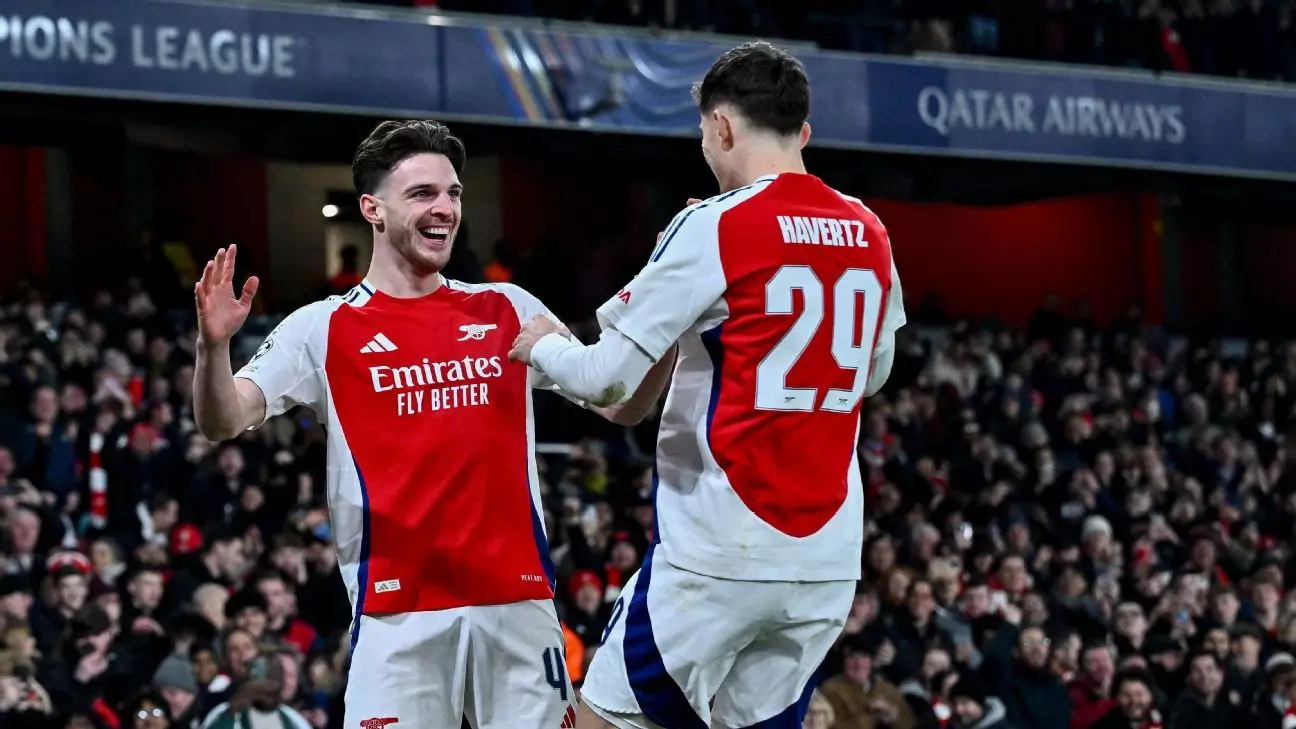In a groundbreaking shift for the UEFA Champions League, Arsenal’s recent triumph over Dinamo Zagreb showcased not only exceptional skill on the pitch but also the potential benefits of the newly introduced tournament structure. The revamped format, characterized by a 36-team group stage, has raised eyebrows and sparked discussions regarding its efficacy among players, fans, and analysts alike. Following Arsenal’s commanding 3-0 victory, midfielder Declan Rice expressed optimism about the change: “It’s been really, really good.” His endorsement highlights a positive reception among players, who often find themselves navigating the intricacies of new competition structures with skepticism.
Arsenal’s position in this new format appears to be a comfortable one. With their performance propelling them into the mix for the knockout stages, they currently sit in third place with 16 points. The team’s solid standings visually lay the groundwork for potential advancement, allowing them to contemplate their next phase with a sense of reassurance. Yet, manager Mikel Arteta’s cautious response encapsulates a strategic mindset, as he chose to refrain from prematurely celebrating their apparent qualification, stating that “we haven’t been told” regarding the next steps. This tempered enthusiasm mirrors a common sentiment shared by coaches who understand that the journey often holds unforeseen challenges, regardless of promising statistics.
The match against Dinamo Zagreb was more than just a victory; it was a showcase of individual brilliance and teamwork. Declan Rice’s decisive opener set the tone, while Kai Havertz increased his season goal tally, affirming his pivotal role in the team’s attacking strategy. The night concluded with Martin Ødegaard’s late strike, marking a significant moment for the captain, who had been searching for opportunities to impact the scoreboard. Arteta’s satisfaction with both the attacking prowess and defensive solidity—evidenced by the absence of shots on target from their opponents—underscores a well-rounded team dynamic that is crucial for advancing in high-stakes competitions such as the Champions League.
One of the less-discussed advantages of avoiding a Champions League playoff is the opportunity for Arsenal to recharge ahead of the latter parts of the season. With the FA Cup no longer in their sights, Arteta’s squad faces a unique chance to regroup and refine their strategies. The manager articulated the necessity of “resetting a little bit,” indicating a focus on recovery and tactical improvement when players return rejuvenated. As the football calendar fills up with various competitions, efficient management of player fitness and morale will be of utmost importance for sustaining both performance levels and player health.
Arsenal’s progress in a restructured Champions League should not only be evaluated by the immediate results but also by the evolution of the game itself. The uncertainties that accompany any new format can lead to innovation and adaptation, both of which are essential in modern football. With key players thriving and a strategic approach in place, Arsenal appears well-equipped to navigate the challenges that lie ahead, offering a potent mix of excitement and anticipation for fans as they aspire for greater success on the continental stage.

